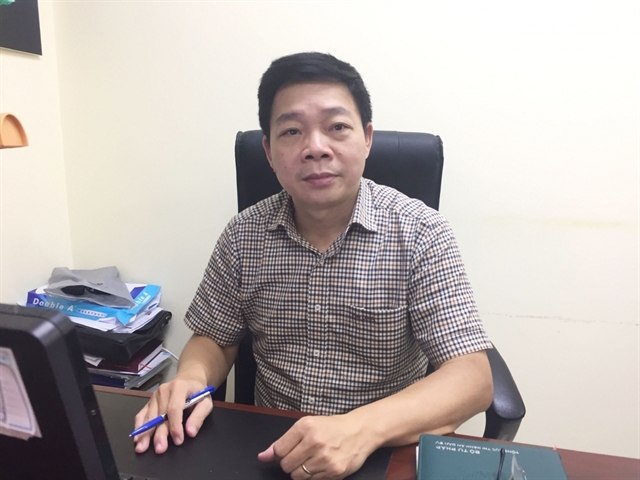 Politics & Law
Politics & Law

Trần Văn Dũng, director of Professional Affairs Department No 2, General Department of Civil Judgment Execution under the Ministry of Justice, speaks to the Voice of Vietnam (VOV) about improving efficiency of retrieving property connected to acts of corruption.

|
| Trần Văn Dũng, director of Professional Affairs Department No 2, General Department of Civil Judgment Execution. Photo VOV |
Trần Văn Dũng, director of Professional Affairs Department No 2, General Department of Civil Judgment Execution under the Ministry of Justice, speaks to the Voice of Vietnam (VOV) about improving efficiency of retrieving property connected to acts of corruption.
Despite a year-on-year increase in the proportion of retrieved property linked to corruption, the rate remains low. What do you think about this problem?
We have made efforts but the results are still not as expected. The proportion of asset recovery in corruption and economic cases is low compared to the total amount of appropriated or lost property.
This results from many causes, but mainly because the amount of distrained assets is much smaller than the recoverable value. For example, in the case of Huỳnh Thị Huyền Như, the amount of money to be executed was up to VNĐ15 trillion but the distrained assets (after being handled) were very modest.
Although the property has been distrained by authorities, the legality of the property is complicated, leading to delays in handling. In order to handle it, we need the involvement of many agencies and departments. The civil judgment enforcement agency alone cannot handle it.
In addition, the co-ordination between agencies in some cases is not good. For example, the transfer of judgments and documents from the proceeding agencies to the civil judgment enforcement agencies is slow in some cases.
Delays in handing over the judgments result in delays in transferring decisions and orders, leading to the delay in the execution of the judgments.
At some agencies, the Party committees and government leaders have not closely supervised the seizure of assets, leading to a delay in asset handling and reducing the process’ efficiency.
There are still some shortcomings in the laws and policies, which is a barrier for the authorities to recover the assets.
What difficulties has the Civil Judgment Execution Agency faced while retrieving property?
There are many obstacles. One of them is handling of more than 50 expired agricultural land use right certificates in Hứa Thị Phấn’s bank fraud case.
In recent months, the complicated development of COVID-19, especially in three cities - HCM City, Đà Nẵng, Hà Nội - with a large number of properties and cash that need to be recovered, had delayed many procedures.
In some economic cases with high value of recovered property, offenders have dispersed or transferred assets during investigation and prosecution. What measures must be taken to prevent this?
This is a relatively sensitive issue because it is related to the ownership of individuals and organisations which is a fundamental right protected by the Constitution and the law. It is necessary to grant more powers and uphold responsibilities of inspecting, auditing agencies so that they have power to distrain and freeze assets at the earliest stage.
If the investigative agencies have enough grounds to identify signs of violations, they should be granted the right to freeze the assets without having to wait for the prosecution decision as stipulated by the current Criminal Procedure Code.
Many think that taking actions too early would violate the property rights of the involved parties, especially when they were later found to have not committed a crime. I think when there is enough evidence, inspectors, auditors with their qualifications have enough grounds to determine the offences. They should be given the power to impose early punishments.
What will the Civil Judgment Execution Department do to improve the efficiency of corrupt property recovery?
Following the Directive of the Party Central Committee Secretariat, there will be many solutions to improve the efficiency of asset recovery in criminal cases related to corruption and economic cases.
We will review and make amendments to the laws on inspection, audit, criminal proceedings, civil judgment enforcement and related legal provisions.
Authorities at all levels must raise awareness about recovering corrupt assets and consider this an important task in the fight against corruption. VNS




